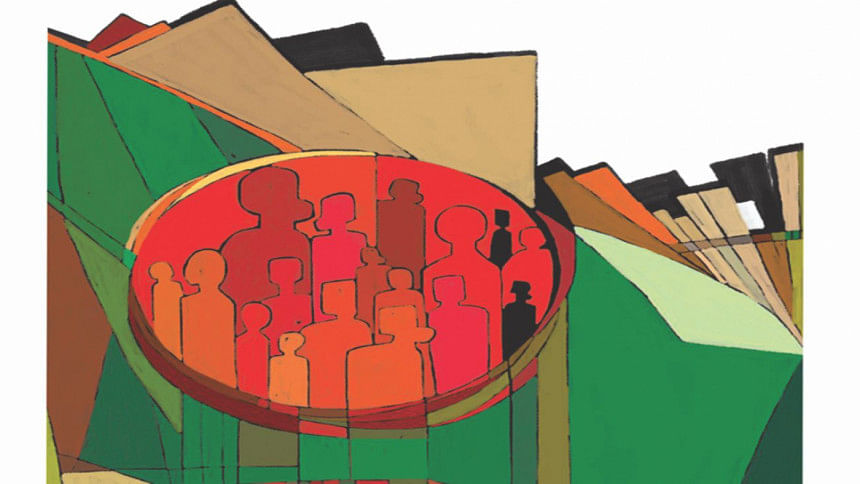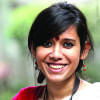Do we really remember?

Memories are mysterious things; collective memories even more so. What else explains the amnesia among a certain group of people in this country regarding the role of the collaborators in the Liberation War of 1971? How can the murderer of Shahid Jahanara Imam's son Rumi suddenly become a "political opponent" unjustly tried? How can the role of Jamaat in '71 be renounced, when the lives and deaths of so many Bangladeshis are integrally tied to their atrocities back then? On the other hand, how can the same people who fought for justice and democracy in '71 now sit and watch complacently as the core values of our Liberation War are made a mockery of? How can they forget that "Muktijuddher Chetona" is something bigger than reductive "Fashi Chai" slogans in Shahbagh, that it is about the liberation of the masses, not just from the Pakistanis, but from oppression of all kinds?
What happened in the last 44 years that so many of us remember the war differently?
We need to make an attempt to understand the complex processes through which individual and collective memories come to be created, sustained and reconfigured within specific socio-historical and political conditions. Our memories are dependent on the interpretive and communication frameworks of a given society at a particular point in time. This means that the social – and by extension, the political, the economic and the ideological – is always already present even within our most intimate of memories. Since these structures are never stable, and always in a state of flux, it would be more appropriate to think of memories as "reconstructions" rather than "recollections".
Therefore, how we remember the Liberation War is conditioned, among others, by our social location (i.e. our class, gender, ethnicity, etc.), an exclusive nationalist historiography that focuses on the sacrifices of some elite leaders meanwhile erasing the contributions of countless subaltern others, and successive regimes of authoritarian and so-called democratic rule that tried to renounce the atrocities of the war and absolve war criminals of their sins. Since independence, countless attempts have been made by different quarters – and not just by anti-liberation forces either! – to rewrite history, to establish propaganda as facts, to rewire memories themselves, so that we would look back without truly remembering. We have been taught contradictory versions of history that are outright lies at worst and simplistic at best, to the extent that we now either disavow the atrocities of the Liberation War or use "Muktijuddher Chetona" as a pretext for justifying repressive measures and silencing dissent, making a shameless travesty of the spirit and sacrifices of liberation.
Within three decades, in front of our very eyes, from pariahs, the Jamaat-e-Islami went on to occupy powerful positions in the very sovereign Bangladesh they had so vehemently rejected, their leaders even rising to the rank of cabinet ministers and given two of the most important ministries during the BNP regime. They solidified their hold over the country's politics to such an extent that they could claim publicly and cockily that "No war crimes were committed" in '71 or that "In fact, anti-liberation forces never even existed." There was public outcry, sure, but the damage was done: seeds of doubt in the nation's flailing collective memory had been planted. The war over history was well underway, entangled with an equally contentious struggle over whether we are Bengalis or Muslims first. Jamaat managed to convince a considerable segment of the population that they were, in fact, guardians of our religion rather than the criminals that some "progressive/seculars/atheists" would have them believe. It didn't help that the Seculars were rigid and exclusive in their discourse -- it served to alienate a populace which, though moderate, still held religion above anything else.
Perhaps as a reaction to this diabolical attempt to disavow the memories of the Liberation War, we witnessed over the years the solidification of a rather inflexible pro-1971 force, one that increasingly felt the need to establish one unified memory of liberation, one official narrative that was beyond reproach. Any narratives that did not fit in with the streamlined memory of 1971 had to be ignored, silenced, disparaged even; it was "us" or "them", after all; whatever little space there was for nuance all but disappeared with the Shahbagh movement. You were a rajakar or an atheist: the choice was yours. Forget that socialism was as much a "Muktijuddher Chetona" as the establishment of secularism; forget that the rallying cry of '71 was for peace, justice and democracy; today, liberation must be remembered, but only on sterilised terms. It is most unfortunate that rather than encourage us to take part in a process of remembering that is holistic, not selective, the ruling party has fostered the "Us vs Them" mentality, taking advantage of people's powerful sentiments on 1971, to the effect that any who critique it can now be demeaned, dismissed and denigrated with a simple yet powerful declaration: "You're a rajakar." An inevitable byproduct of throwing around the term "rajakar" indiscriminately is that it slowly loses its historical significance and allows real collaborators, whose war crimes are well documented, to hide behind the excuse that the ruling party is out to persecute and prosecute its opponents.
On a theoretical level, all narratives of the past involve silences and forgetting. These silences can be self-imposed, consciously or unconsciously. After all, memories and identities are constituted mutually and entail certain compromises. To establish some boundaries of belonging (be it national, political, religious), we tend to selectively register certain signposts and markers to solidify our identification with some groups and distance ourselves from others.
The erasures or silences can be also imposed by authoritarian regimes, oppressive social structures, nationalist movements, or neoliberal institutions that want to get rid of evidence in the Archive (which, mind you, is not a physical, tangible place) so that they may never be recalled. However, on a broader sense, the very act of conservation and memory – the choice of particular artifacts in a museum, for instance or what stories we researchers want to tell and how—requires that certain memories be prioritised and others forgotten.
What happens when erasure is so successful that we never know the memory existed in the first place, when we forget what it is that we have forgotten? The Archive as we know is full of such voids. How do we learn to look for the traces of these voids when the mechanisms of repression have taught us to look away? What new symbolic and political frameworks might allow us to bring into vision memories hitherto silenced? How might we begin a process of remembrance, of healing the wounds of the past, of finding a way that does not reproduce inequality and injustice through our living memory?
"Remembering," wrote anti-colonial writer, Jacqui Alexander, "is different from looking back. We can look back sideways and not bring things into full view. We can look back at some past perceived to be wholly retrievable in the present, or some mirage of it, a gesture of nostalgia that can give rise to fascisms of different kinds."
Sadly, we as a people are no longer encouraged to remember. But if we really want to bring peace to the dead, to do justice to the sacrifices of '71, we must do more than simply follow the crowd. We must remember to remember differently.
The writer is an activist and journalist.

 For all latest news, follow The Daily Star's Google News channel.
For all latest news, follow The Daily Star's Google News channel. 



Comments